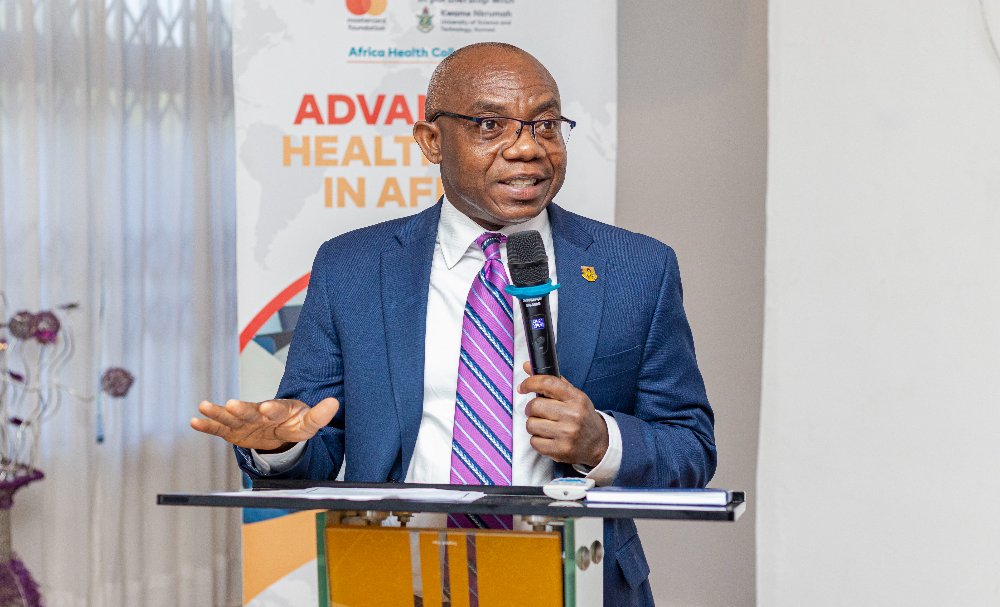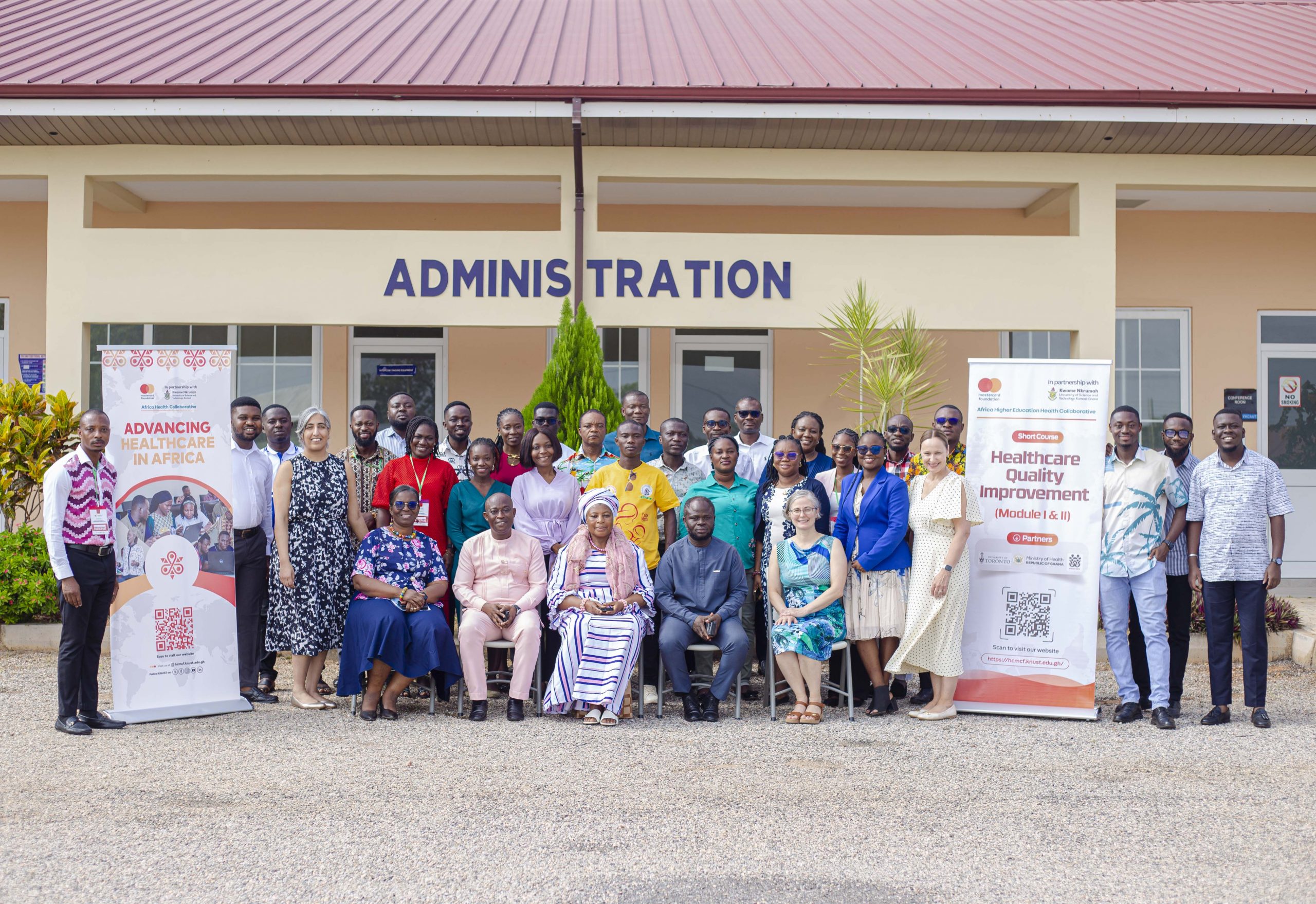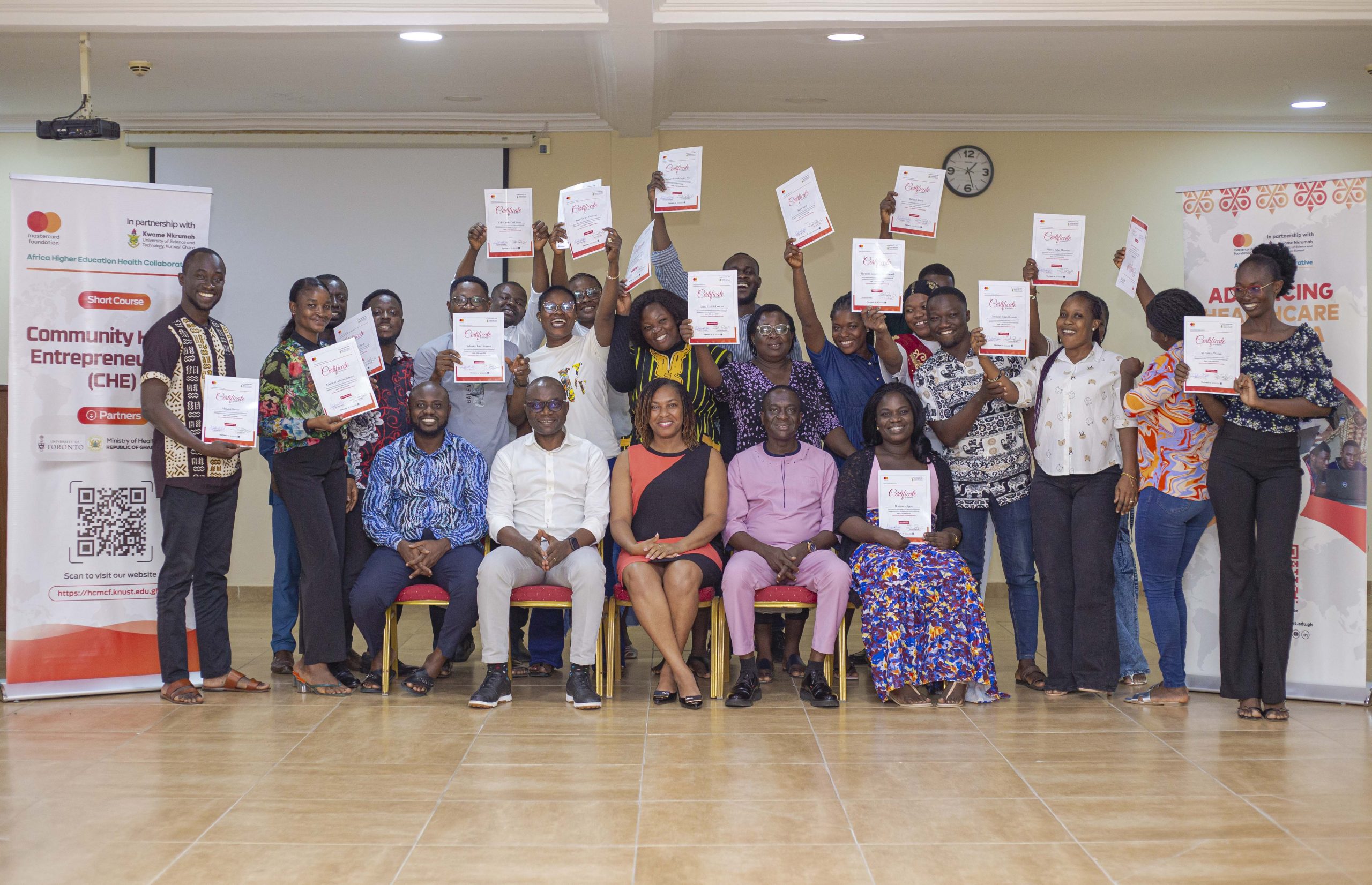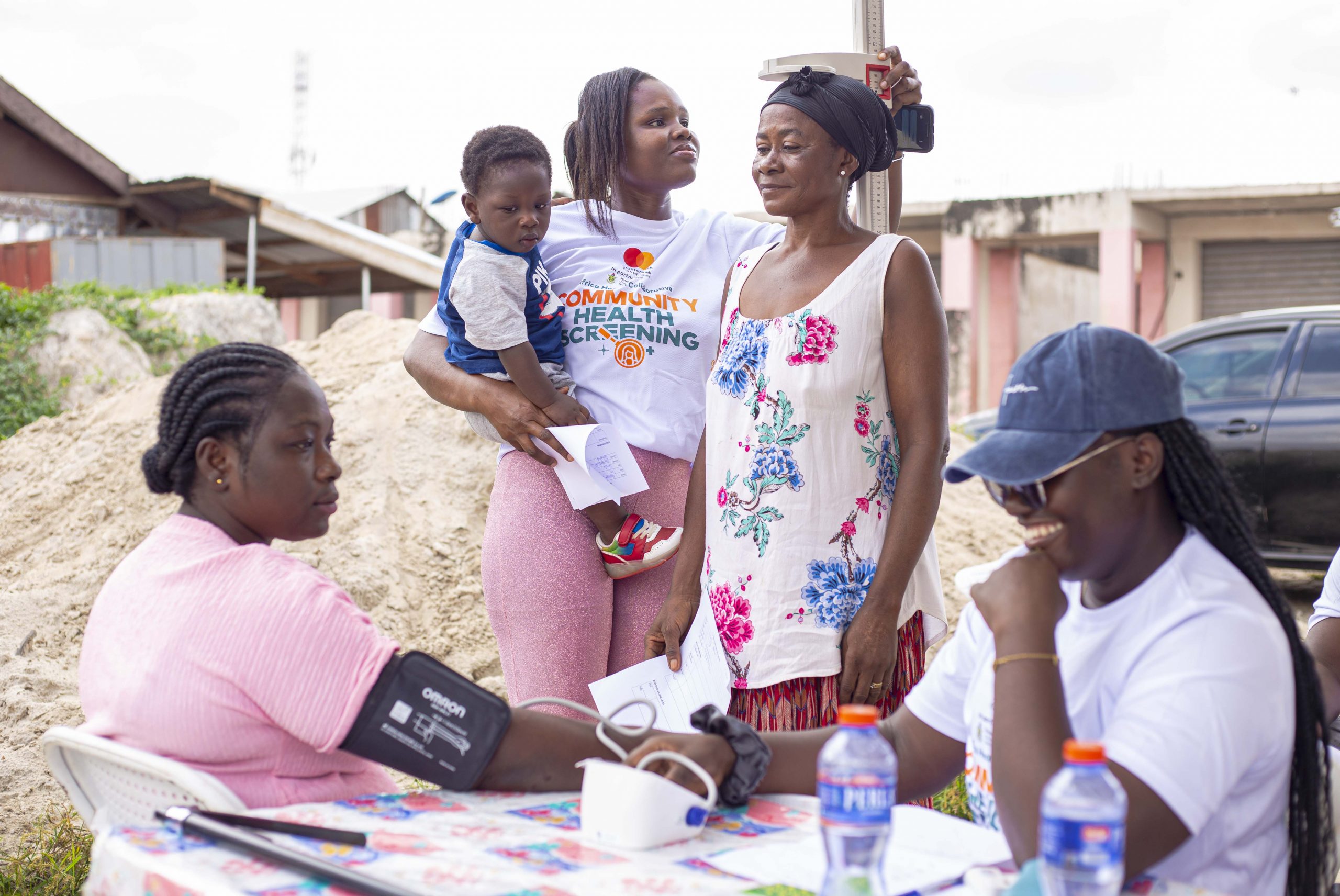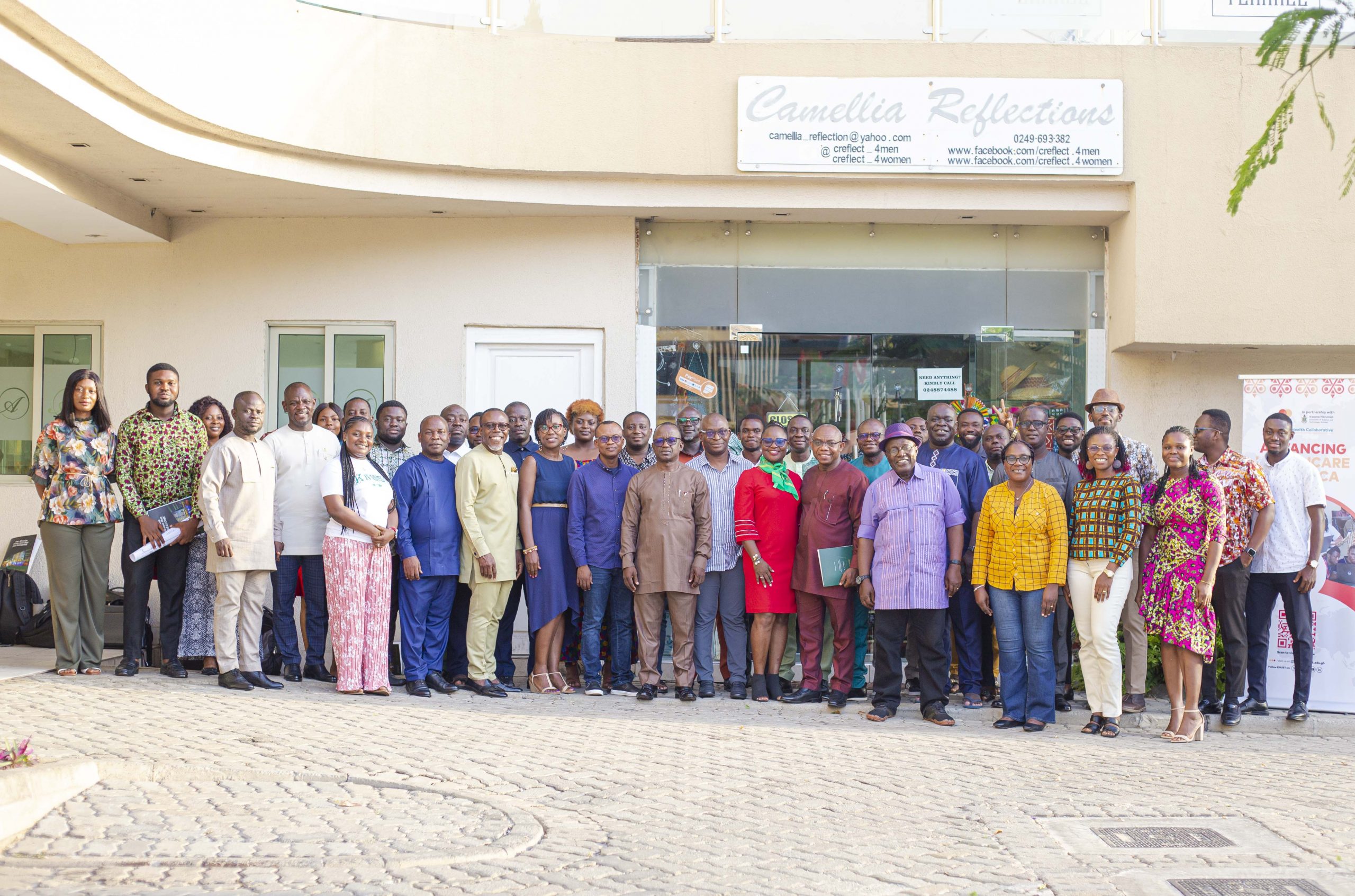The Provost of the College of Health Sciences at the Kwame Nkrumah University of Science and Technology (KNUST), Kumasi, Professor Christian Agyare, has underscored the transformative power of data modelling in advancing health research and innovation across Africa.
He made these remarks at the opening session of a Structural Equation Modelling (SEM) workshop organised for MSc Health Entrepreneurship students. Professor Agyare highlighted SEM as a powerful analytical technique essential for deepening our understanding of human behaviour, health systems, and the broader social determinants of health.
“The value of Structural Equation Modelling lies in its ability to simplify and clarify complex relationships within health and social systems,†he explained. “By constructing and analysing models that mirror real-world dynamics, we are better positioned to interpret trends, predict outcomes, and design interventions that address pressing health challenges. The future of impactful health research depends on our ability to master such tools.â€
The workshop, spearheaded by the Health Ecosystem pillar under the leadership of Dr. Joseph Owusu, aims to equip a new generation of health Entrepreneurs with advanced analytical skills. It forms part of a broader initiative to strengthen innovation and entrepreneurship in the health sector through evidence-based decision-making.
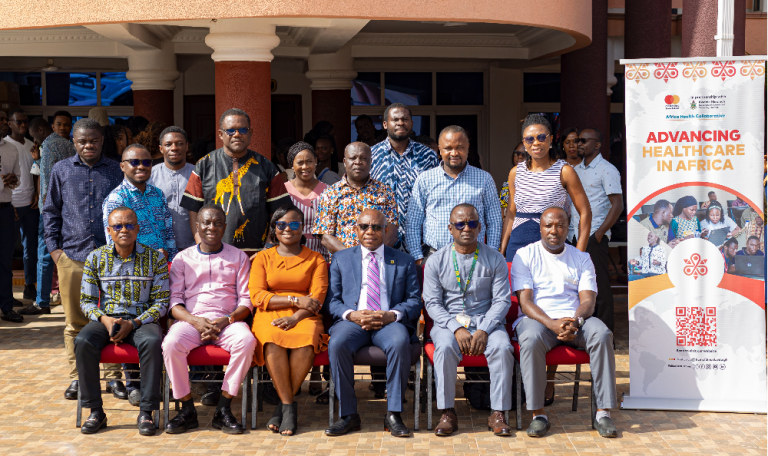
Addressing participants, Dr. Owusu emphasized the importance of developing practical competencies in data interpretation and systems thinking.
“Your presence here reflects a shared commitment to explore and apply key techniques in data analysis,†he said. “Throughout this training, we will delve into practical methodologies that will empower you to make informed decisions and contribute meaningfully to the health and entrepreneurial ecosystems.â€
Dr. Henry Ataburo, the lead facilitator, stressed the importance of grounding research in the realities of local healthcare systems.
“Understanding the context in which we work is key to evidence-based public health,†he noted. “We must generate knowledge that is not only valid but also useful in our specific settings. Let’s work together so that by the end of this training, we are equipped to make meaningful contributions to both research and practice.â€
